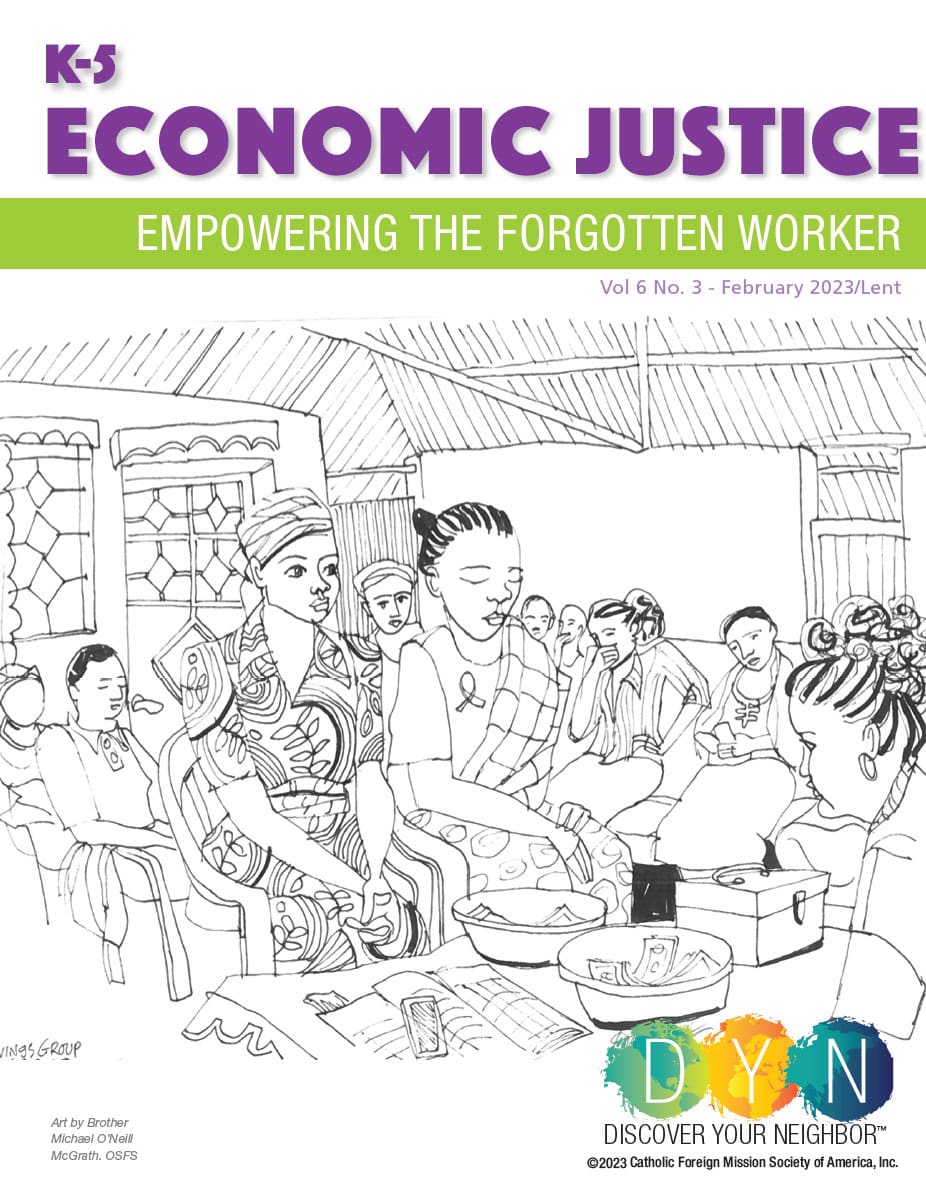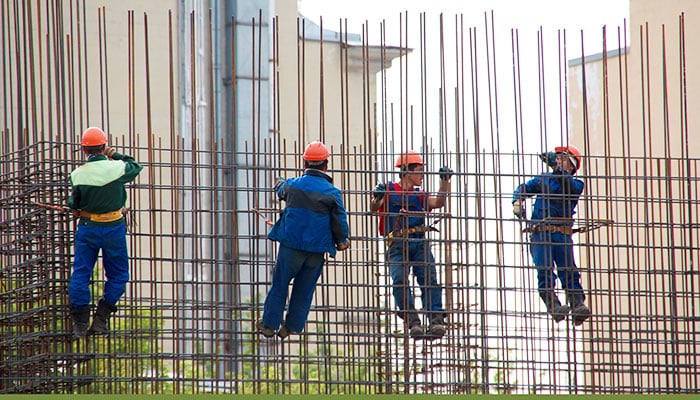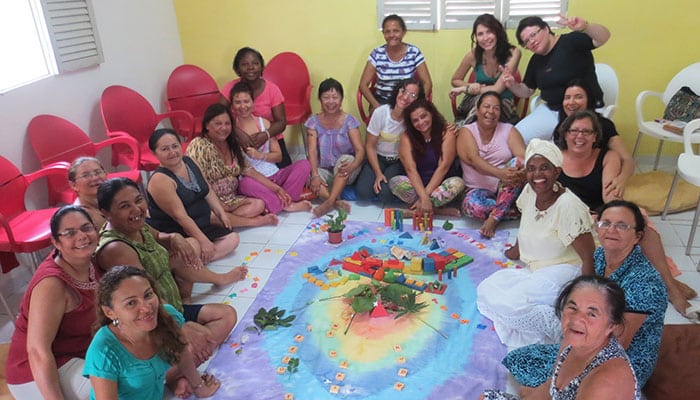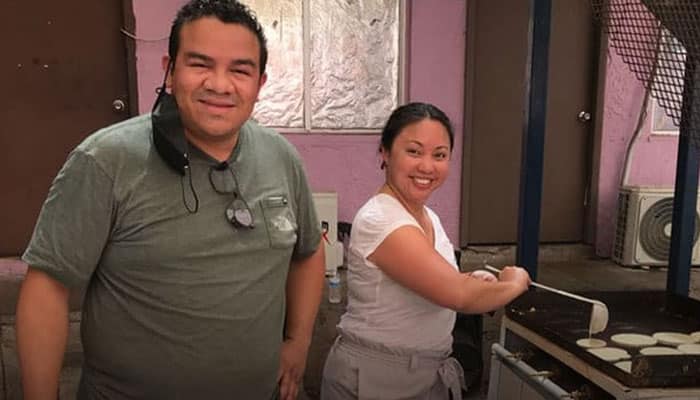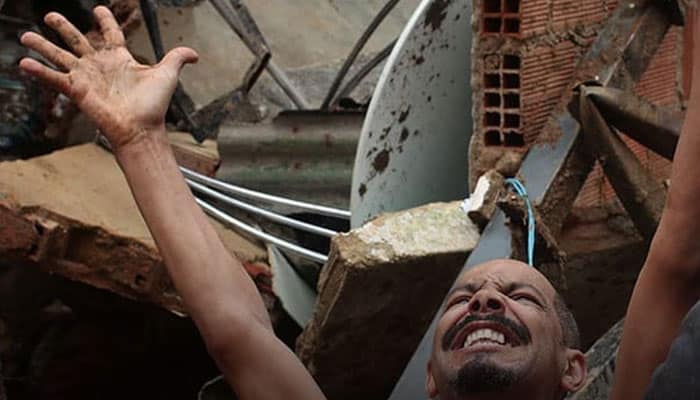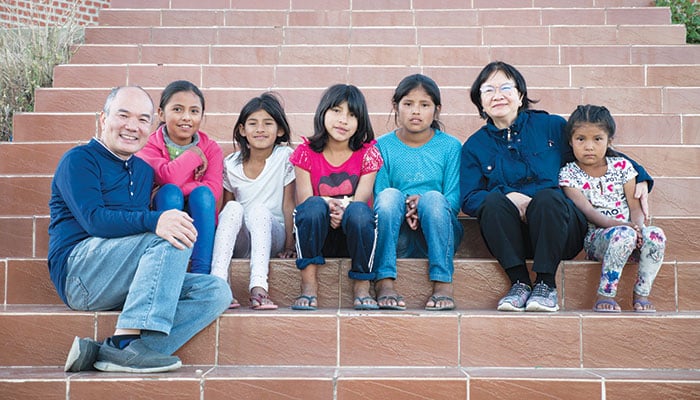Access your Middle School or K-5 Educator’s Guide for your classroom by filling out the form below. You will then be directed to a page where you can download a high quality PDF file to print out or share digitally.
Download the:
OBJECTIVE: During Lent, students will Do an examination of conscience reflecting on the dignity of work. They will READ scripture and Catholic Social Teaching and APPLY it to the area of work. Students will take action by SHADOWING or INTERVIEWING someone about their work. Families will ENGAGE in actively reaching out to support others in their work.
USE this Lenten examination of conscience to REFLECT on work. ANSWER the following questions for yourself in a journal.
- Whose work do I notice and compliment? Whose work do I ignore?
- Have I looked down on others because of the work they do?
- Do I thank my teachers, the janitor, the bus driver, or the person in the front office for the work they do?
- Am I kind and respectful to the workers at restaurants or grocery stores?
- Do I pick up after myself so I don’t make others’ jobs harder?
- What work happens within a family? Who does it? Do I show gratitude for those who do the work? Do I do my fair share or expect someone else to do it?
- Do I take pride in the work I am asked to do at school? Do I slack off? How does slacking off affect me? Others?
Use your answers to these questions as part of your preparation for the Sacrament of Reconciliation and then schedule a time with your parents, teacher, or catechist so that you can go.
PRAY: Dear St. Joseph the Worker, you quietly worked hard and often unnoticed behind the scenes to support Jesus and Mary. Pray for me that I may work hard at school, in my family, and in the community. Help me to see and be thankful for all those who do work for me, may I be kind and grateful for their work. AMEN
READ this Mission Story.
Economic Stability
In countries around the world and the U.S., women are often the ones who do the work that is poorly paid, unpaid, and are the ones who frequently go unnoticed. Maryknoll Sister Efu Nyaki who lives and works in João Pessoa, Brazil, noticed this and set out to do something about it. If you look at a map of South America you will find João Pessoa at the point that is farthest east of the continent. It is there that Sister Efu started AFYA Holistic Health Center with another Maryknoll Sister and a small team of women in a periphery neighborhood. 22 years ago Sister Efu was meeting with women in this poor neighborhood when she realized they needed better health care and a source of income. Sister Efu explained, “I started the center for women to be able to have good health, dignity and a means of being capable of providing for themselves.” They named the center AFYA which means “health” in Sr. Efu’s native Swahili language spoken in her birthplace of Tanzania.
To empower the women to be part of the staff at AFYA they began to offer training to women to become therapists and to prepare healthy food for the restaurant at the center. When people come to the center they pay a fee. The women collect the earnings each month and after they pay the bills, they divide the earnings equally among the staff. Sister Efu describes how AFYA has transformed the 22 women that work there, “In earning their own money the women found dignity in being able to provide for themselves and their families.”
Over the years AFYA has become a vital part of this poor community. When Maryknoll Fr. Dennis Moorman, MM visits this community, he gives courses at AFYA. Fr. Dennis says, “I am impressed by the team’s commitment to help one another. An important lesson I have learned from AFYA is the importance of solidarity and teamwork. I like that the work at AFYA is educational and motivates people to take responsibility for their own health and gives them economically feasible ways to care for themselves and their families. I love that it is a cooperative of women, which helps them to support their own families as well as builds solidarity among them as they support one another in so many ways.”
The women are poor, the funds they bring home each month vary between $1,000 and $2000 Reais, which is approx. $200 to $400 U.S. Dollars a month. An example of how the women work together is that one of the women needed a washing machine. She did not have the money to buy it so the cooperative gave her a loan so she could purchase the washing machine.
When asked what are the next goals for AFYA Sr. Efu said, “The goals are always expansion. We want to expand so we have more room to provide services for people, and we would like to expand so we can work with more young people who experience violence. We want to do more work around ecology and we need a larger meeting space to engage in conversations with a nonviolence approach so we can begin talking to each other about difficult topics.” One of the ways in which AFYA has already expanded is that after 20 years of Sr. Efu being the leader, a new person has been empowered to take the lead as coordinator of AFYA. Bruna Maria, a 25-year-old Brazilian woman, is now the coordinator and is the person who handles the day-to-day leadership at AFYA. Sr. Efu still remains an active member of the team along with the other Maryknoll Missioners, and she says, “Now, I can dream from the background.” Sister Efu’s dream that was started many years ago lives on and continues to transform lives as it empowers others to use their skills and abilities to lead AFYA into the future.
ANSWER the following questions in a small group or in your journal.
-
- What are some of the challenges for the women that work at AFYA? How does it benefit them to work cooperatively?
- How did empowering the women of AFYA affect them and their community?
- Describe what Fr. Dennis said he has learned from working at AFYA.
READ THE FOLLOWING:
OLD TESTAMENT: Deuteronomy 24:14-15
LIFE OF JESUS: Matthew 20:1-16
CHRISTIAN LIVING: James 5:1-6
ANSWER the following questions in a pair or with a small group.
- EXPLAIN what you think the scripture is saying about work and having economic justice. Discuss why God wants workers treated justly?
- How can this scripture be applied to workers being treated fairly today? According to Scripture, what workers are being treated unjustly today?
WHAT DOES THE CHURCH SAY?
Catholic Social Teaching defines a just wage as the amount necessary to establish and properly maintain a family and provide security for its future.
Pope Francis says, “Many of you live from day to day, without any type of legal guarantee to protect you. Street vendors, recyclers, carnies, small farmers, construction workers, dressmakers, the different kinds of caregivers: you who are informal, working on your own or in the grassroots economy, you have no steady income to get you through this hard time … This may be the time to consider a universal basic wage which would acknowledge and dignify the noble, essential tasks you carry out. It would ensure and concretely achieve the ideal, at once so human and so Christian, of no worker without rights.” 4/12/20
DISCUSS the following questions with a partner.
- What does the Pope mean by a “universal basic wage?” Look it up if you don’t know.
- What do you think is the minimum amount of money someone would need to earn per week in your area to meet their basic needs? Have a class discussion about it after discussing it with your partner.
LEARN about work by SHADOWING someone for a day or by INTERVIEWING someone about their work.
SHADOW someone by going to work with them for a day or even just part of a day. NOTICE what surprises you about their work, is it harder than you thought, and what do you learn about the person as you watch them work. ASK them the interview questions and WRITE down their answers.
INTERVIEW a service worker, someone who is on the front lines serving people, but who doesn’t get paid much. ASK them the interview questions and WRITE down their answers.
INTERVIEW QUESTIONS:
- What is it like to do the work you do?
- What is hard or challenging?
- What have you learned about yourself from doing this work?
- Do you think you are paid justly?
WRITE a blog about your experience shadowing or interviewing people. Include the answers to the interview questions.
ORGANIZE an event at your school or parish to celebrate those who work behind the scenes or the “invisible workers.” People like the janitor, the cafeteria workers, or the parish secretary. TAKE pictures of the workers and WRITE a little about them. USE the interviews from the take action section. POST the pictures and stories of the workers. INVITE friends, family, and those you highlighted to the celebration. DESIGN a graffiti wall on a chalkboard or butcher paper so everyone can write a thank you note to these workers.
SUPPORT the Maryknoll Missioners in Brazil and READ more stories about how they live out their vocation through the work they do by visiting their websites at Maryknollsociety.org, Maryknollsisters.org, and MKLM.org.
ENGAGE YOUR FAMILY
As a family, be intentional during this Lent to support others in their work. Start Lent by IDENTIFYING people or a person that the family will support during this season. Think of people in your school, neighborhood, or work that may need some assistance.
Think about other students or someone in your neighborhood who works really hard but still struggles with something, consider how you might help. For example:
- TUTOR the student who works really hard but still struggles with math.
- COACH the student who wants to play sports but needs some assistance with their game.
- MENTOR a younger student in your school or parish who seems like he or she could benefit from your experience and advice.
- CREATE and deliver a food basket of necessities to a family or person that is working really hard, but still struggles to pay the bills.
- RESEARCH organizations that support low income workers, for example, https://catholiclabor.org/
During Lent, share as a family what you’re doing, how it’s going, and how you find God in the midst of it.

